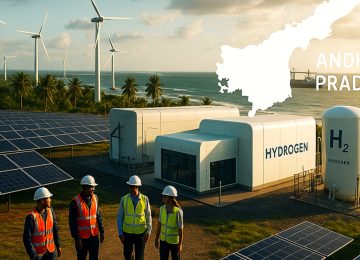The international community faces a stark reality: the ambitious 2030 sustainable development goals, or SDGs, are increasingly unlikely to be met.
This is primarily due to persistently widening financing gaps, according to a recent warning from the International Monetary Fund (IMF).
This assessment, delivered ahead of the Fourth Financing for Development Conference (FfD4), underscores the urgent need for a collective overhaul of global financial systems and policies to avert a major development setback.
The IMF’s executive board reviewed a staff paper on the fund’s role in international development financing. They highlighted that funding for the 17 interconnected SDGs far exceeds what many nations can manage. This is especially true for low-income and fragile states.
Since 2020, a number of global shocks, such as the COVID-19 pandemic and geopolitical unpredictabilities, have made structural issues worse. As a result, the estimated yearly financing gap for developing nations has increased to an astounding $4 trillion, more than 50% more than pre-pandemic estimates.
The growing debt load that many developing countries are facing has been noted by the IMF as a major challenge. Although most people’s debt sustainability is still largely intact, high interest rates and growing refinancing requirements are taking vital funds away from necessary development expenditures. Debt servicing expenses are taking up more than 20% of government revenue in some of the least developed nations, which is four times more than it was ten years ago. This leaves little money for infrastructure, healthcare, and education—all essential components of sustainable development.
Sustainable finance: a mismatched landscape
Despite trillions of dollars circulating in the global financial system, the architecture for sustainable finance remains ill-equipped to channel these resources effectively towards the SDGs.
The IMF, while not a development institution by design, emphasizes its crucial role in maintaining macroeconomic and financial stability as a prerequisite for sustainable growth. The Fund is actively involved in initiatives aimed at improving debt restructuring mechanisms, such as domestic resource mobilization, and promoting sound macroeconomic policies to create an environment conducive to sustainable investment.
However, the challenges extend beyond national fiscal management.
The UN has consistently called for a significant surge in affordable, long-term financing, advocating for an “SDG Stimulus” of at least $500 billion annually. This includes reforming the international financial architecture, ensuring multilateral development banks adopt new approaches to risk, and expanding contingency financing.
The current landscape often sees developing countries paying significantly higher interest rates on their sovereign debt compared to developed nations, further hindering their ability to invest in long-term sustainable development.
Policy and collective action: the way ahead:
Both the IMF and the UN underscore that accelerating SDG progress demands a major collective effort. Key policy recommendations include:
Robust domestic reforms: strengthening macroeconomic policies, improving public spending efficiency, enhancing governance, mobilizing domestic resources, and fostering private-sector-led growth.
Adequate international support: Providing well-coordinated capacity development and additional public and private financing to complement domestic efforts.
Proactive debt management: Improving debt restructuring processes to ensure timely and sufficiently deep debt relief for countries with unsustainable debt and exploring innovative solutions like sustainability-linked bonds and debt-for-nature swaps.
Reforming the global financial architecture: addressing systemic inequalities, expanding concessional financing, and ensuring a more equitable allocation of resources within international financial institutions.
The upcoming FfD4 conference is seen as a critical opportunity to translate these calls to action into concrete commitments.
As the 2030 deadline looms closer, the warning from the IMF serves as a potent reminder that without a fundamental shift in global financial priorities and a concerted, collaborative effort, the promise of a sustainable and equitable future for all may remain an elusive dream.













